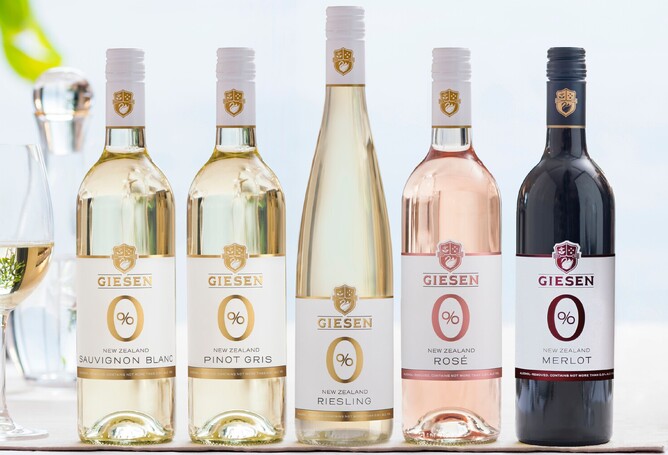Is it still wine if it contains no alcohol?
Two new zero alcohol 'wines' were released this week by the Giesen Group, the first company in New Zealand to create zero percent alcohol wine with the launch of its first zero alcohol Sauvignon Blanc in 2020. This week the company launched a new zero percent alcohol Riesling and a Merlot, one of which tasted uncannily like wine with alcohol while the other one remains, in my view, a work in progress. The Merlot is good quality but the Riesling is excellent.
The parenthesis in the first line relate to the fact that wine is widely defined by professionals in the industry as an alcoholic drink made from fermented grape juice. Based on this definition, it is difficult to see how a grape based alcoholic beverage that has had its alcohol removed can still be referred to as 'wine' but the supposed beauty of the English language is its ability to bend and flex.
So, does this mean that a wine with its alcohol removed is no longer a wine? Some would say yes and I would typically be one of them, except that the new Giesen zero percent alcohol Riesling actually does remind me of wine. It tastes so pure and Riesling like that any loss of alcohol does not appear to have significantly changed the grape flavour inherent in good Riesling.
The zero percent alcohol wine movement is growing globally and over the past two years, I have tasted approximately 12 'wines' which have had their alcohol removed. They have varied widely in taste and quality from a peachy tasting French 'Chardonnay', which really didn't resemble wine or Chardonnay but was very much like fresh peach juice, to a convincing southern French red containing Cabernet Sauvignon, which could nearly pass as a wine.
The best overall zero percent alcohol 'wine' that I had tasted, in my work as both an independent wine writer and also as a professional wine adviser to Regional Wines & Spirits in Wellington, was the original 2020 Giesen 0% Sauvignon Blanc, until this week. The Sauvignon's flavours were straight forward and grapey, devoid of winemaking bells and whistles, which could potentially confuse flavours once alcohol has been removed. Because, like it or not, wine does contain alcohol and if this doesn't suit the consumer, there are alternatives, such as kombucha, natural teas or even fresh herbs infused in hot water. Lemon balm is a personal favourite.
But I must confess, there is nothing like the taste of wine and sometimes my own love for its taste means that I often wish it didn't contain alcohol so that I could enjoy more, without suffering any ill effects. I've long since accepted that this isn't going to happen but this week is the closest I've come to it with the revelation that is the new Giesen 0% New Zealand Riesling.
If any grape can do it, Riesling can, thanks to its lime zest, ripe sweet mandarin and fresh crunchy green apple flavours. This is the best zero percent alcohol 'wine' yet to touch the sides of my glass and my palate. It's no surprise because not only is the Giesen family the producer of New Zealand's biggest selling Riesling but the grape itself is one of the best white grapes in the world, capable of making wines that taste delicious when youthful and can retain freshness in the bottle for decades.
It turns out that I am not alone in these thoughts.
The chief winemaker for Giesen is Duncan Shouler, who says the new zero percent Giesen Riesling is his personal favourite of the no alcohol range he produces. All the grapes in this wine come from the South Island of New Zealand and are a blend of Marlborough and North Canterbury, two outstanding Riesling regions.
It always seems a great pity that more people don't buy into the delicious taste of Riesling and here it is again, without alcohol and rocking a beautiful flavoursome vibe that no other zero percent alcohol 'wine' has yet done, in my humble view.
This post was written independently by the writer of this website.
Post script
Giesen 0% Riesling and 0% Merlot are available widely in New Zealand, RRP $17.99.




